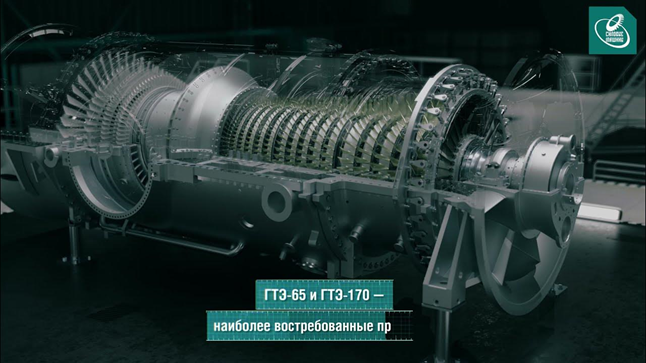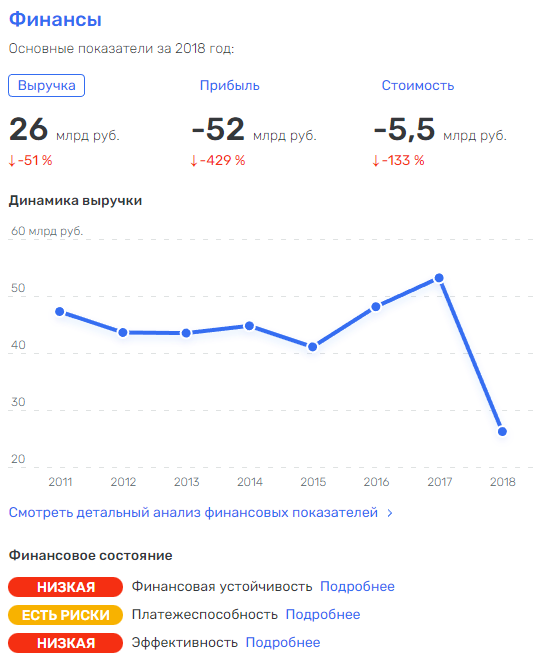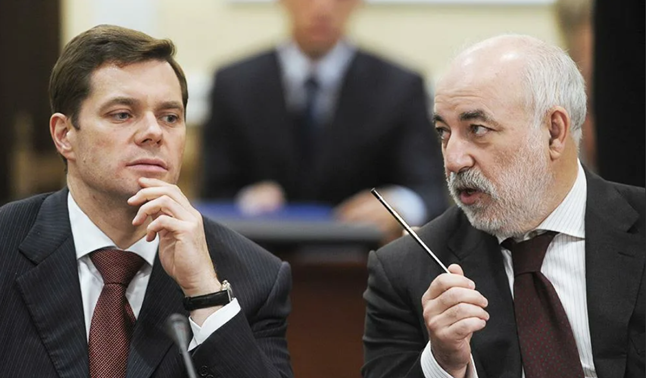The conflict between Alexei Mordashov and Viktor Vekselberg over the supply of gas turbines continues, the tasks that the country has set for them are not being solved.
The board of directors of the energy company T Plus (part of Viktor Vekselberg's Renova Group of Companies) terminated the contract with the company's general director Andrei Wagner ahead of schedule. The reason could be his position on the supply of gas turbines to the company from the Power Machines Group of Companies of another influential oligarch, the owner of Severstal Alexei Mordashov.
There seems to have been enough contradictions between the oligarchs for a long time. However, in the last year they escalated, including due to large-scale sanctions pressure on the Russian business of steel producers and industrial equipment.
Andrei Wagner, who left T Plus, allowed himself quite harsh statements about the obligations of Power Machines to the company, which he could only postpone the search for a compromise solution. And, apparently, he became uncomfortable with both sides. But the conflict is clearly not limited to this. Is there a long and difficult confrontation between Vekselberg and Mordashov ahead?
Details - in the material of the correspondent of The Moscow Post.
Recall that Severstal Group of Companies suffered extremely serious losses due to sanctions, not to mention a purely market drop in steel prices. Many technological chains have also collapsed.
As a result, the project for the development and production of domestic gas turbines stalled, if not completely failed - something that the Russian industry so badly needs. Their serial production was supposed to begin at Mordashov's Power Machines site, and the first "recipient" of domestic turbines, as expected, would be just T Plus.
However, in those agreements it was not about a pilot project, but about serial supplies. I.e. deliveries that could be provided with both spare parts and comprehensive maintenance. But Mordashov, apparently, decided to play "on thin": "Power machines" were able to offer only an expensive pilot installation of GTE-65, which will not go into the series due to current difficulties with import substitution.
Recall that the total cost of developing turbines of two classes - medium and high power, was estimated at 17 billion rubles. For the same purposes, Power Machines received a state subsidy of 5 billion rubles. However, with the refusal of "T Plus," the project could "fly into the pipe."
Moreover, under Wagner, the company even refused to run in the first sample of the GTE-65 gas turbine. Allegedly, it is expensive and unsafe to check the readiness of a product at its facilities. This is essentially a testing stage. At the same time, it is not a fact that the supply of the turbine would be unprofitable for T Plus because Vekselberg probably calculated to get it at a large discount in such cases.
This conflict has been known for a long time, at least since the fall of 2022. However, it entered the public plane only at the beginning of April 2023. Then Andrei Wagner sharply criticized the work of Silmash: "I don't understand: we invent the wheel so difficult, for a long time and for so much money. These are turbines from the power series that exist in the world in hundreds. "

"Turbine of Contention" - GTE-65. Photo: YouTube-channel Power Machines https://www.youtube.com/watch?v=AsaiBNiIhrs
In response, the general director of Silmash, Alexander Konyukhov, told reporters that T Plus was offering them bondage terms of the contract, suggesting a complete withdrawal of the structure from the project. The words of top managers are quoted by Kommersant.
Is Silmash going to the bottom?
Thus, the conflict is obvious, but it is strange: and I want, and pounding. Each side is trying to knock out the most favorable conditions for itself, risking staying in the red altogether. At the same time, for Mordashov, it seems, the question is more acute. According to the oligarch himself, in 2022, due to his sanctions, Severstal lost about $400 million - this is about 10% of its profit in 2021
In its third quarter 2022 report, the group said consolidated iron ore sales for the nine months of this year were down 46% from a year ago due to export restrictions. Almost double!
We also note that a number of pages on which the company's financial information was presented even disappeared from the Severstal website. For example, for the first quarter of 2022.
Mordashov himself reacted very painfully to sanctions against his structures and himself. Among other things, he stated that he had nothing to do with the current geopolitical tension, he worked honestly both in the Russian Federation and in other countries, he was not connected with politics. Apparently, based on the same sanctions risks, he began to lay eggs in different baskets: for example, he transferred to his wife a 30% stake in TUI, Europe's largest tourist concern.
In May 2022, metallurgists, including Mordashov's structures, said that the policy of the Russian authorities, high taxes and a "strong" ruble, could also lead to large losses. I.e. everything is not thank God everywhere. But it was in May, and back in March of the same year, Severstal was overdue the payment of coupon income on Eurobonds due to the freezing of the payment by the American bank Citibank.
Then it was about Eurobonds for $800 million. It is difficult to come up with more alarming calls for investors than the inability to fulfill their obligations to them.
As for Power Machines, the project to create gas turbines was supposed to literally revive the structure from ash. Having government contracts totaling 137 billion rubles, according to the results of the last open financial report for 2018, the company suffered losses in the amount of 52 billion (!) Rubles. The value of assets is negative - 5.5 billion rubles. Revenue from 2017 to 2018 fell by almost half - to 26 billion rubles. And this all happened before the SVO.

Photo: Rusprofile.ru
The company can "collapse" at all. Its financial stability and efficiency are recognized as low, there are risks in terms of solvency. It turns out that Power Machines can live on credit and breathe on incense, while mastering subsidies for the production of turbines, but unable to either complete the project or normally sell pilot installations.
Vekselberg could very much help with the latter. But he seems to want to get them almost for nothing, which is clearly not to Mordashov's taste. Ravens do not pick ravens' eyes?
The struggle continues
Vekselberg himself is also experiencing enough difficulties due to the current geopolitical situation. He had previously complained that he had moved the entire family to the US, but could never foresee what was happening now, and that was having a significant impact on his life. Not to mention the fact that even before the special operation, in 2021, $1.5 billion was frozen on its Western accounts.
That is, Viktor Vekselberg continues to earn money in Russia, but does not connect his family's life with our country, and is very upset that this approach did not become an indulgence for him in the West?
He had enough problems at home, including conflicts with the same Mordashov. In 2016, another one flared up - when President Vladimir Putin instructed to check coal prices for the Vorkuta TPP, which is part of T Plus. Coal was supplied by Vorkutaugol, controlled by Severstal Alexei Mordashov.
The parties could not conclude a long-term supply agreement, which affected work with consumers due to high generation prices. Consequently, a crisis of non-payments could also arise. Severstal assured that coal prices were agreed with the FAS and are market-based. However, it is highly likely that Mordashov tried to remove three skins from Vekselberg's structures, because there were simply no alternatives. After that, the government tried to convince T Plus to switch from coal generation to gas generation.
And it also became only an episode of a long-term confrontation between the two oligarchs. You can also recall the situation of 2011, which resembles classic business wars. Then contradictions broke out due to double banks in the Sverdlovsk region. As it is believed, the estate of Viktor Vekselberg.
At that time, a branch of Metcombank OJSC had been operating in Yekaterinburg for 15 years, the ultimate beneficiary of which was Viktor Vekselberg. However, in August 2011, the office of OJSC Metallurgical Commercial Bank (also abbreviated as Metcombank) appeared in the city, owned by Alexey Mordashov through Severstal.
I.e. in fact, Mordashov entered Vekselberg's "clearing" with a bank similar in name to the degree of mixing with Vekselberg's. Of course, this caused the displeasure of Viktor Vekselberg. It is very similar to the scheme with "double payments" that come to citizens from different management companies with extremely similar names. The Moscow Post once wrote in detail about that story.

Conflicts between Alexei Mordashov and Viktor Vekselberg have been going on for more than ten years. Photo: https://www.scoopnest.com/ru/user/ForbesRussia/766562036826333184-
Thus, relations between the oligarchs have remained strained for many years. And there is no desire to unite efforts for the tasks facing the country - rather, only a thirst for profit and a desire to push through their interests at all costs. With this approach, success and synergy in the Russian industry can be expected for a long time.


.jpg?v1681968551)
.jpg?v1681968551)